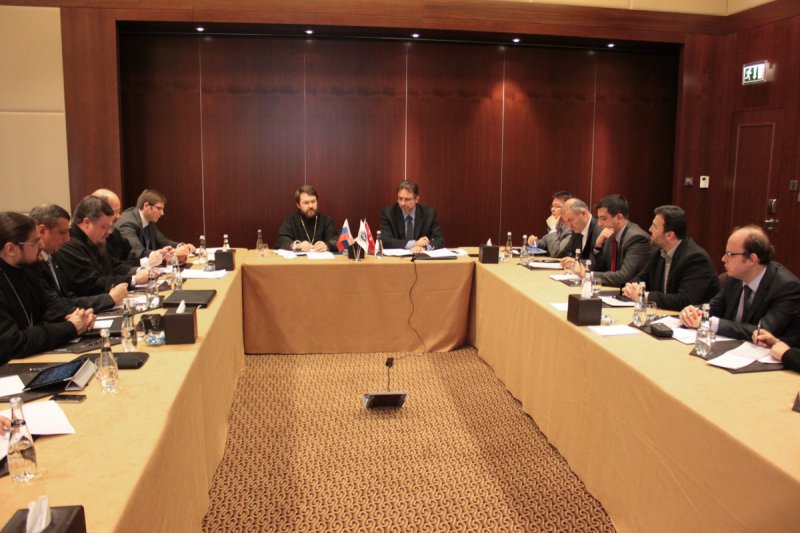
The first meeting of the working group of the Russian Orthodox Church and the Residency of Religious Affairs of the Republic of Turkey took place in Ankara on 15 December 2012. The group was formed by agreement made at the meeting of His Holiness Patriarch Kirill of Moscow and All Russia with the head of the Residency held in Moscow on 30 November 2011.
The meeting was chaired by co-chairmen of the working group, Metropolitan Hilarion of Volokolamsk, chairman of the Moscow Patriarchate’s Department for External Church Relations, and Prof. Dr. Mehmet Paçaci, general director of foreign relations, Residency of Religious Affairs of the Republic of Turkey.
Taking part in the meeting from the Russian side also were archpriest Vsevolod Chaplin, chairman of the Moscow Patriarchate’s Synodal Department for Church-Society Relations; archpriest Nikolai Balashov, DECR deputy chairman; and DECR staff members hieromonk Stefan (Igumnov), deacon Dimitry Safonov and Alexander Yershov.
At the suggestion of Metropolitan Hilarion, the participants observed a minute of silence in tribute to the memory of the victims of terrorist attack in Newton, Connecticut, USA.
The DECR chairman conveyed His Holiness Patriarch Kirill’s greetings to the participants and presented a report on “The Role of Interreligious Dialogue in International Relations.’ During the discussion the participants exchanged opinions on the protection of human rights of religious minorities in the contemporary world.
It was considered helpful to develop cooperation between educational institutions of the Russian Orthodox Church and the Republic of Turkey, for instance, to initiate agreements between the University of Ankara and the Ss Cyril and Methodius Postgraduate and Doctoral School.
Archpriest Nikolai Balashov presented a report on the development of Russian Orthodox Pilgrimage to Christian shrines in Turkey.
The participants noted similar understanding of the main aspects of relations among religion, state and society and underscored the positive role of religion in social processes, in the strengthening of family values and public morality, and in the establishment of civil peace and accord. Also noted was the importance of common efforts in upholding traditional moral values and in the protection of the institute of the family.
